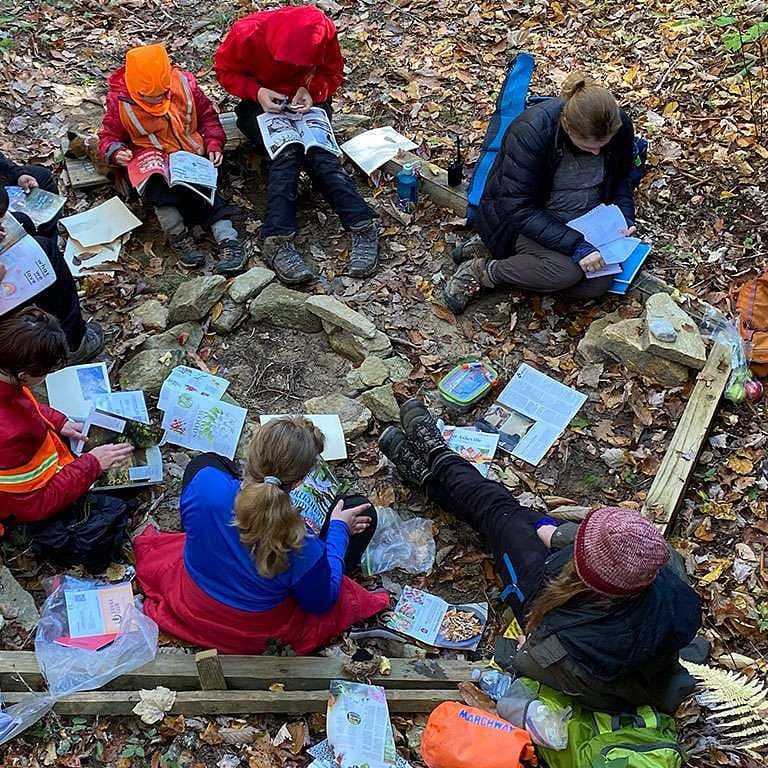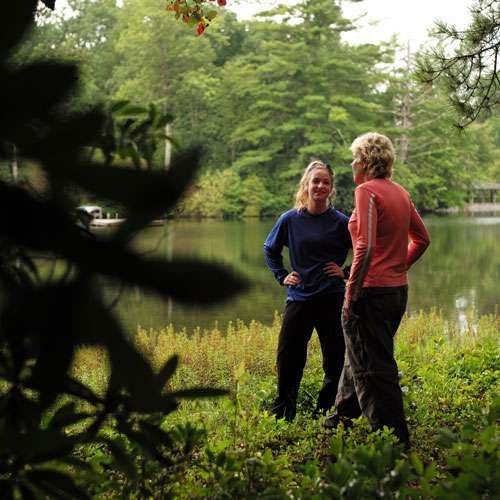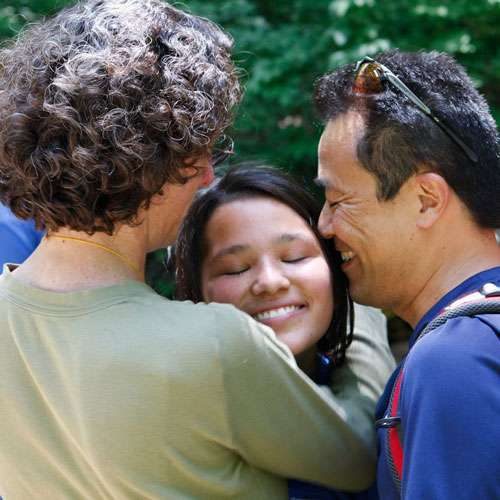Providing Help For Troubled Teens: Our Values-Driven Approach
Troubled youth often struggle with direction and feeling connected. At Trails Carolina, a wilderness camp for troubled youth, our values-driven approach helps change this.
Our Trails Values drive us day in and day out to become the best we can be. Troubled youth dealing with issues such as low self-esteem, depression, and opposition defiance respond strongly to the Trails Team and fellow students who are living by the Trails Values.
Our value system is so strong at Trails we named our program using these values. Trails is an acronym for our core values: Trust, Respect, Accountability, Integrity, Leadership, and Service.
What We Value Influences Who We Become

Trust
Trust is established quickly when students arrive at Trails. Even troubled youth and our youth dealing with behavioral issues who may struggle with building trust learn to trust their peer group for support, to trust that their field instructors will provide for their safety, and to trust the therapeutic process in place at Trails.
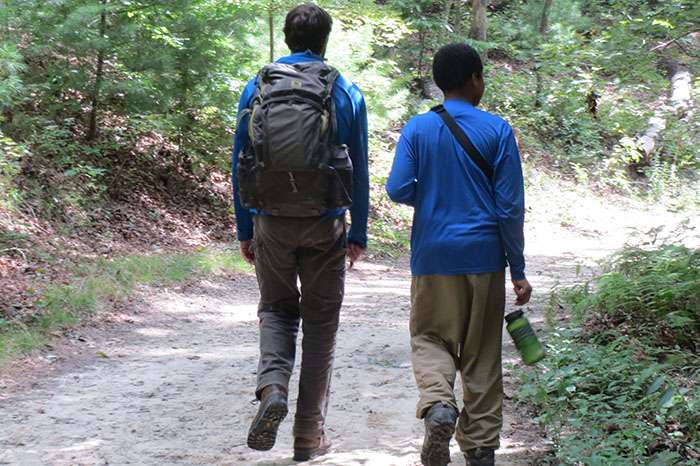
Respect
Respect often begins with respect for nature – this is one of the key strengths of our wilderness program approach. While teens may have manipulated people and environments as a coping mechanism back home, the wilderness does not allow it. Students learn healthier coping skills and gain self-awareness, self-confidence, and self-efficacy in the natural environment. They also learn to respect fellow students and field staff who lead others to success in the wilderness.
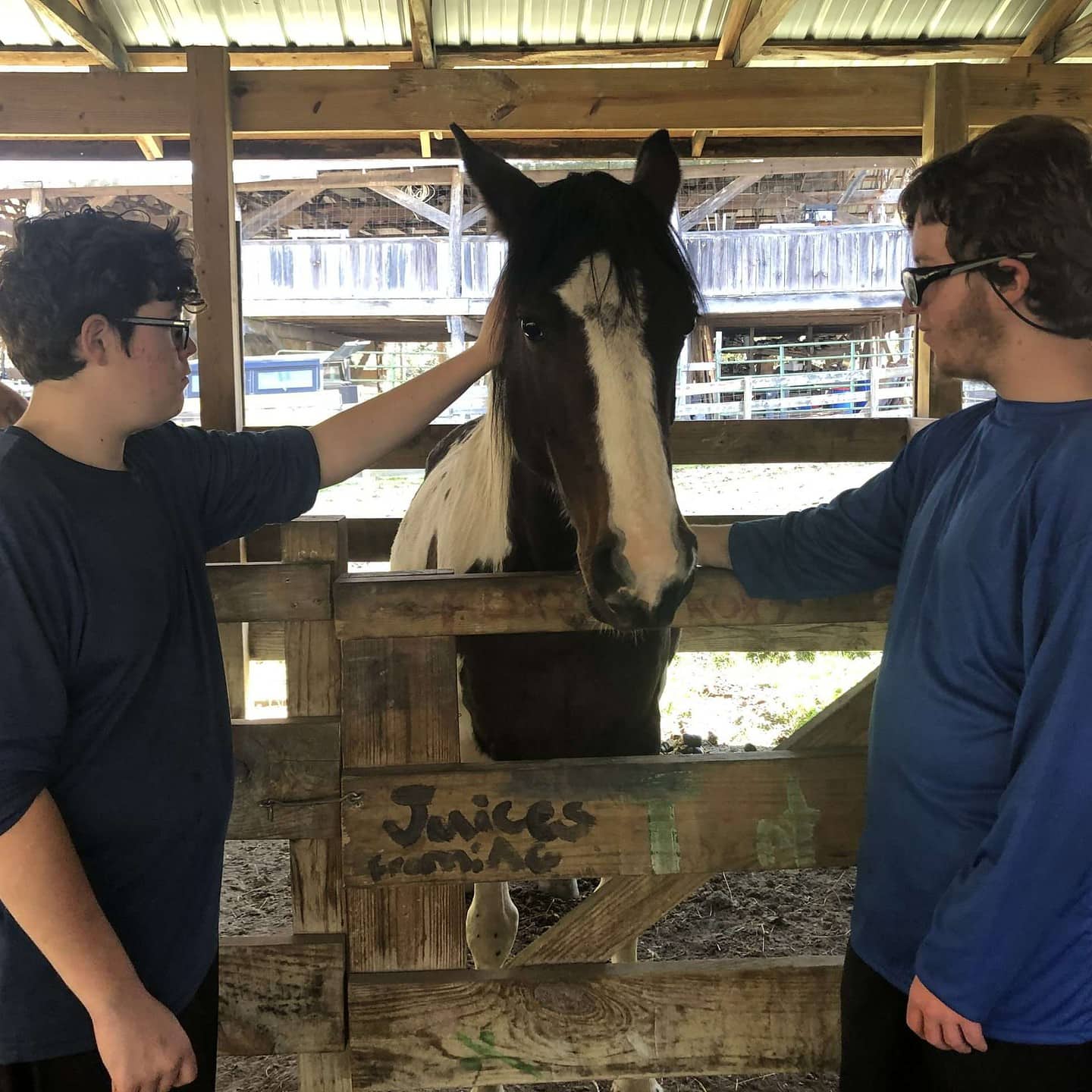
Accountability
Accountability is a key driver to beginning change with our students who are dealing with school refusal, manipulation, defiance, and other behaviors that no longer serve them. Not only do staff and peers hold students accountable, but so do the natural consequences of their actions. Accountability is a key to helping our students grow into responsible, mature individuals.

Integrity
Integrity is the continual revelation of character as seen through one’s actions. Some have said that integrity is “who you are when no one is looking.” The wilderness has a way of revealing one’s character, as well as forging a foundation of solid and consistent choices and thought processes.
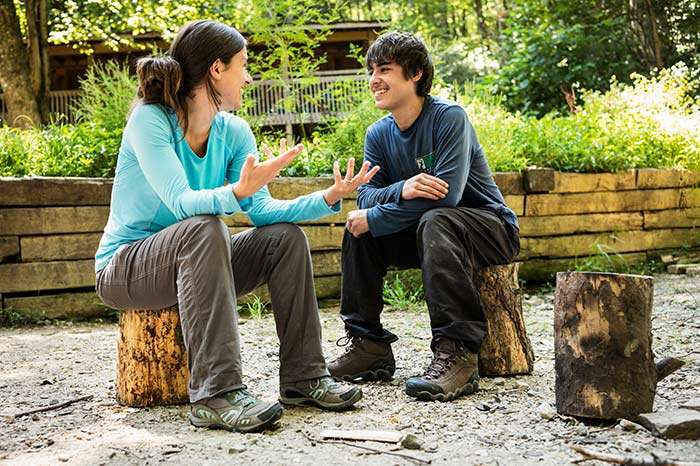
Leadership
Leadership provides immediate rewards. Boys and girls learn to succeed at wilderness living while exhibiting a team spirit. Our students gain confidence and develop skills necessary to forming healthy relationships through opportunities to work as leaders and team players. As they gain confidence, some teens step into leadership positions even though previously they may have only played the role of follower or teammate.
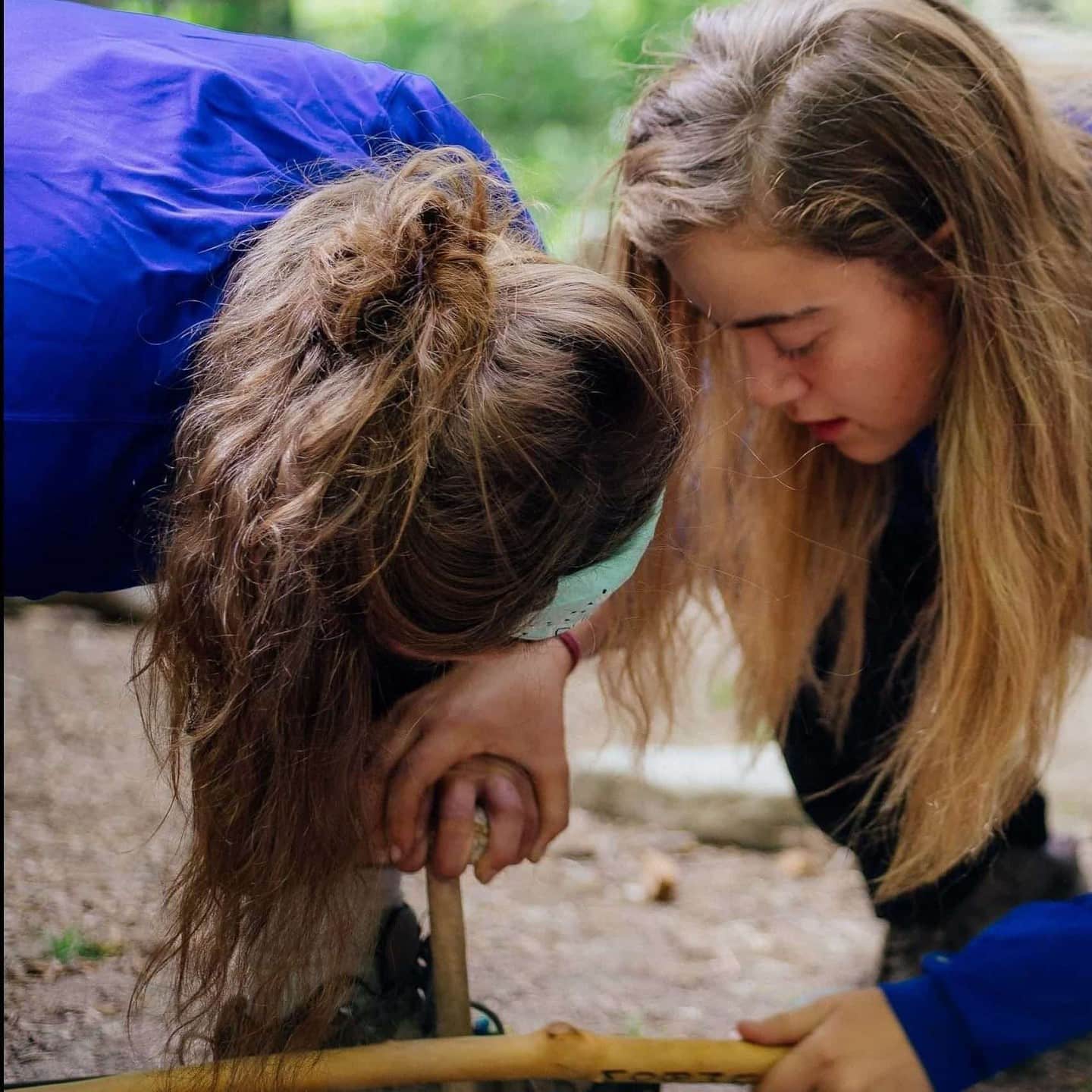
Service
Service is the notion that we get the furthest in life by helping others. By focusing on service as core to the Trails experience, we are allowing our troubled youth to see themselves as part of a larger environment. This helps foster a sense of belonging, purpose, and humility, all of which are important aspects for our students to grow and thrive.
Family Involvement Is Essential To Helping Troubled Teens
In our experience, families dealing with issues at home benefit from therapeutic programs for troubled youth and teens that prioritize family involvement — Trails Carolina is one of these programs.
At Trails Carolina, we offer a nature and adventure-based treatment program for families who seek professional help and mental health treatment for their child. We are a unique residential treatment center that combines wilderness and adventure activities with evidence-based, trauma-informed mental health treatment that is proven to lead to long-lasting positive outcomes.
Unlike other residential treatment centers and therapeutic boarding schools that only allow the troubled teenager minimal contact with family members, Trails Carolina incorporates family involvement at every step of the process.
At Trails, we focus intently on involving the entire family to improve the likelihood of long-term change for you and your child.
How A Supportive Home Environment Can Make All The Difference
The impact of family involvement on teens who are struggling with mental health challenges, self harm, drug and alcohol use, oppositional defiant disorder, or other negative behaviors can be profound. Cultivating a supportive home environment can help young people work through difficult times and make positive changes in their lives.
At Trails Carolina, we’ve seen firsthand that when students feel supported, heard, and understood by their parents of troubled teens, they are more likely to continue on their positive healing journey after their time at Trails. That’s why we’ve developed parallel programming for the families of our students where we teach them similar coping strategies and communication techniques that their children are learning in our program.
By establishing healthy communication patterns within the family unit, adults can provide guidance while allowing teenagers to express themselves freely without fear of judgment or rejection. Additionally, by modeling problem-solving techniques, parents can teach skills related to conflict resolution and encourage ongoing use of the skills learned at Trails, which will serve teens well throughout their lives.
Ultimately, when families become actively involved in helping at risk youth heal emotionally and mentally, everyone benefits from stronger relationships built on trust and understanding. Understanding how best to communicate with your teenager is essential for fostering strong relationships built on trust and understanding.
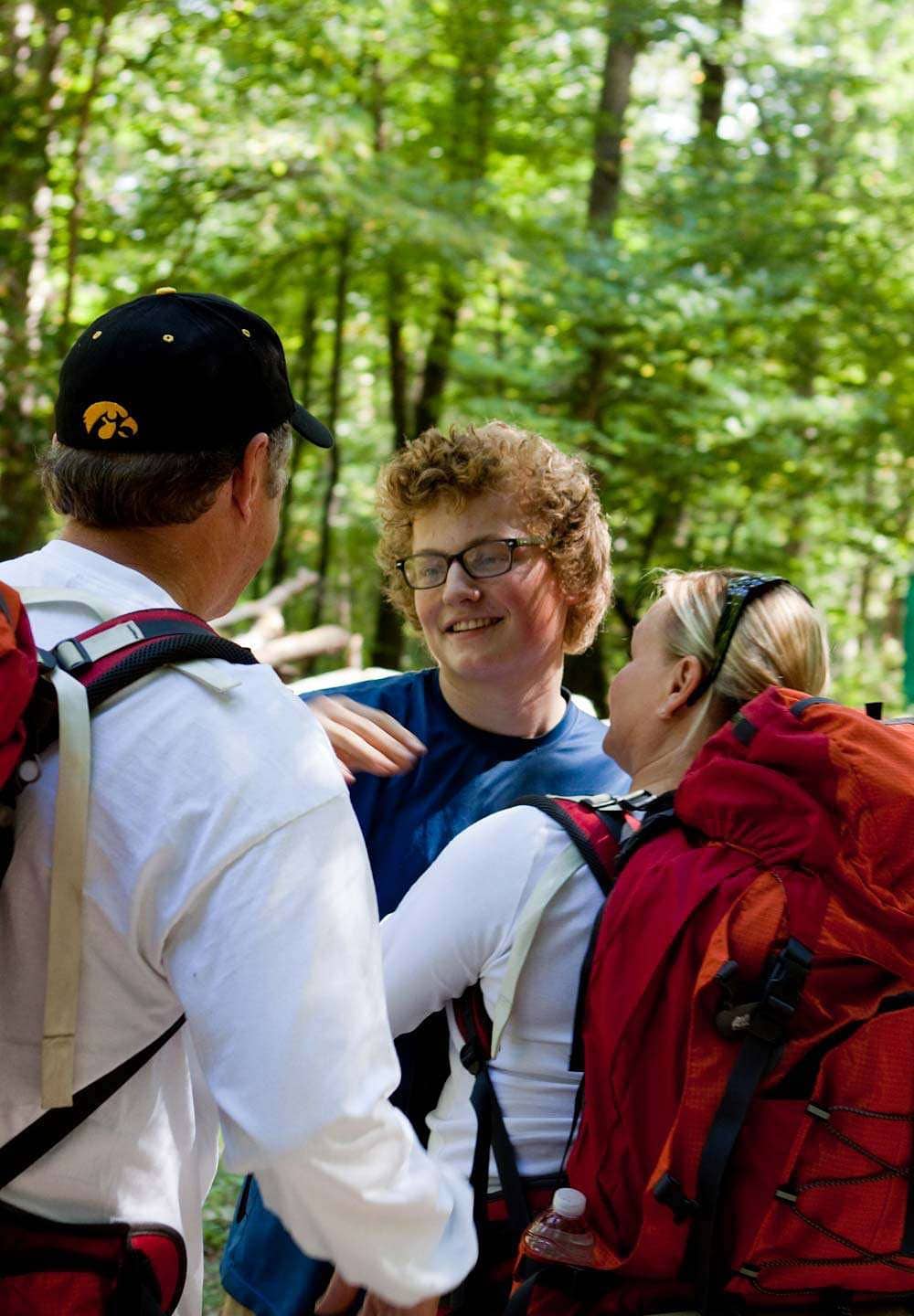
Grasping The Healing Power Of Connectedness, Support, & Unconditional Love
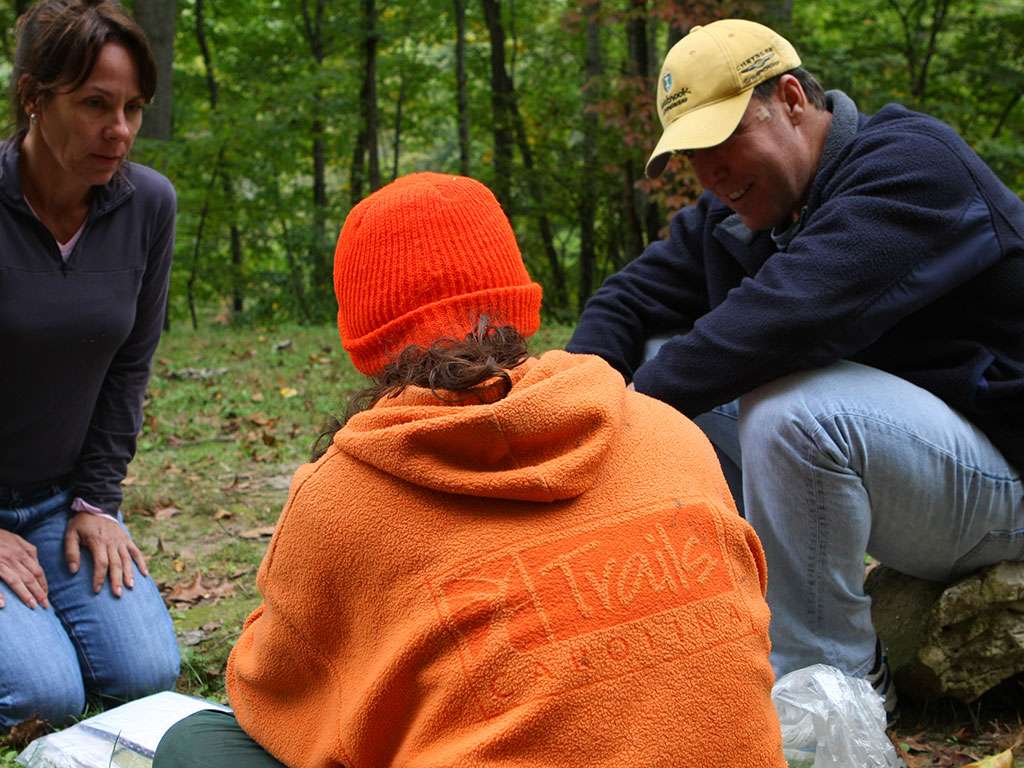
When families are learning and growing along with their children, it helps develop a sense of mutual respect and connection between parent and child. This connection provides an emotional anchor for teens as they face life’s struggles, helping them feel safe and secure to make and learn from their mistakes.
Trails Carolina family members learn how to set healthy boundaries, communicate more effectively with each other, and provide support governed by unconditional love for the troubled teen. Parents who become actively involved in the therapeutic process are better equipped to help their troubled teen heal on an emotional and mental level.
When parents embrace the process of healing with open arms, it strengthens relationships built on trust and understanding which can lead to positive changes in a teen's life journey.
Additionally, many teens who have strong positive connections at home are less susceptible to peer pressure, low self esteem, disruptive behavior, failing classes, drug or alcohol abuse at an early age, suicidal thoughts, and addiction or obsession with electronic devices.
Strategies For Improving Family Involvement: Developing Effective Interaction And Support In The Home
Learning how to most effectively support your troubled teen can be a daunting process. At Trails Carolina, we help parents every step of the way with our parallel family programming.
When incorporating strategies to foster constructive — rather than destructive — family involvement, developing effective interaction and support in the home is key to aiding young people in reaching their potential, and helping them navigate life’s struggles with a sense of security and stability.
Here are some strategies that parents can use to ensure they are providing a supportive environment while also establishing appropriate boundaries:
- Encourage open communication by listening to your teenager’s struggles and validating their feelings.
- Demonstrate the power of empathy by placing yourself in their shoes.
- Set clear expectations and boundaries while offering unconditional love and acceptance for all of your teen’s choices.
- Model effective communication techniques such as active listening and identifying your own emotions.
- Take an active role in managing difficult situations by showing support and teaching problem-solving skills.
- Read more strategies. . .
By implementing these strategies, parents can help their troubled teen begin the healing process at home, or continue the process after leaving residential treatment. We encourage you to contact a mental health professional if your teen’s behavior is extremely concerning.
Our team is always available to help you find out if Trails Carolina is a good fit for your child and your family. Contact us today.
Get started today
Contact us today to learn how Trails Carolina can help your family
Trails saved my daughter’s life. Amanda is an amazing human and a brilliant therapist. I am so grateful to her, Science Steve, and the other wonderful people who could reach my daughter at a time when I could not.
Margot Lowman August 2022
Great life changing experience for our son. After becoming addicted to gaming during covid he was very depressed. At Trails he experienced the wilderness, Science Steve, learning survival skills and top notch therapy and support etc… I highly recommend! This gave our son and our family a renewed family bond full of love and excitement about his bright future.
Winnifred Wilson July 2022
Outstanding clinical work and superb staff! There’s a great culture at this company and it shows with how they engage with families/clients.
Kristin Brace June 2022
Trails Helps Troubled Teens & Families Heal
It is essential for families to invest in the healing process of their troubled teens. Establishing healthy communication patterns within the family unit and providing an emotional anchor of security and stability are key components of this process.
Additionally, modeling effective communication techniques such as active listening and identifying emotions can help create a safe space where adolescents feel comfortable expressing themselves without fear of judgment or rejection.
Through these strategies, parents can support their troubled teens while also strengthening relationships built on trust and understanding which will provide young people with the tools they need to transform pain into growth while finding strength and resilience despite adversity.
Who We Help:
Our experienced and caring team of trained wilderness guides, certified teachers, and licensed mental health professionals use evidence-based, trauma-informed practices that are proven to work well for students struggling with a host of mental health problems and troubled teen behavior including:
- Depression
- Anxiety
- Family conflict
- Low self-esteem
- Trauma
- Social isolation
- Self-harm
- Suicide ideation
- Adoption
- Defiant behavior/Oppositional Defiant Disorder
- Gaming and technology obsession
- Substance abuse
- Attachment issues
- Manipulative behavior
- Poor academic achievement
- Learning differences
- School refusal
- ADHD
- Mood dysregulation
- Autism (high functioning)

